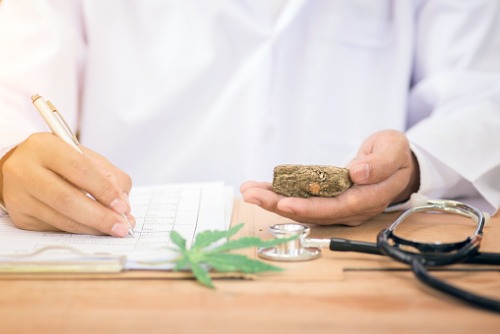Experts agree the term has a loaded connotation that overstates the danger

Pot users may experience ill effects from overdoing it, but calling it an “overdose” may be too much.
According to recent figures from the Canadian Institute for Health Information (CIHI), the number of emergency room visits due to cannabis overdoses tripled in Ontario from 449 in 2013-14 to nearly 1,500 in 2017-18. In Alberta, the numbers almost doubled from 431 to 832.
Cannabis users and advocates have questioned the report, saying that it’s “impossible” to overdose on pot. According to experts, that may be due to how the term “overdose” is usually used.
“We think of it in terms of opioids where, clearly, someone who has never taken opioids, if they take an excess amount, they will always get into trouble,” Dr. Eddy Lang of the University of Calgary and Alberta Health Services told CBC News. “It's not as cut and dry with cannabis.”
While excessive opioid consumption could result in death, the reported consequences of consuming too much marijuana have been limited to comparatively minor symptoms such as paranoia, nausea, and unconsciousness. Some use the term “greenout” to refer to the effects of extreme pot consumption; Lang said “self-poisoning” would be a preferable term.
“You can, yes, quote-unquote overdose, but it depends on how you define overdose,” said Matthew Hill, an associate professor at the Hotchkiss Brain Institute in Calgary. “[M]ost people associate overdose with death and that's not what the actual definition of the word should be.”
Hill explained that opiate consumption can kill people because the part of the brain stem that controls cardio-respiratory and pulmonary systems has opiate receptors. “When opiates bind there, they depress neural activity in the part of your brain that unconsciously regulates breathing and heart rate,” he said. “There's no cannibinoid receptors in those brain regions in humans so you can't physically overdose to a fatal level.”
Among the most observed negative effects of cannabis overconsumption in Calgary emergency departments, according to Lang, is cannabis hyperemesis syndrome: users who go past their limits may experience an attack of severe vomiting that can last up to two days. Other commonly observed symptoms are more psychological than physical, he added: “They'll become agitated, they'll become paranoid. I wouldn't think of this as an overdose but it's definitely an adverse effect.”
Cannabis experts have also raised the possibility of people taking in too much pot from edible products. While smoking weed lets the psychoactive substances enter the bloodstream quickly through a pulmonary route, the metabolic process involved in ingestion is considerably delayed. According to Hill, the effects of an edible may not be felt for 60 to 90 minutes, prompting inexperienced consumers to assume that they need to eat more to get a high.
In an informal poll of colleagues and followers on social media, Hill found that there was no clear consensus on the term that should be used when someone has an adverse reaction to consuming too much cannabis. Among the nearly 400 respondents, 30% chose “cannabis toxicity,” 29% chose “cannabis overdose,” 15% chose “cannabis poisoning,” and 26% suggested other terms.
Related stories:
Canadian pot firm to partner with university on medical trial
Education the best defense against pot’s medical hazards, says expert



